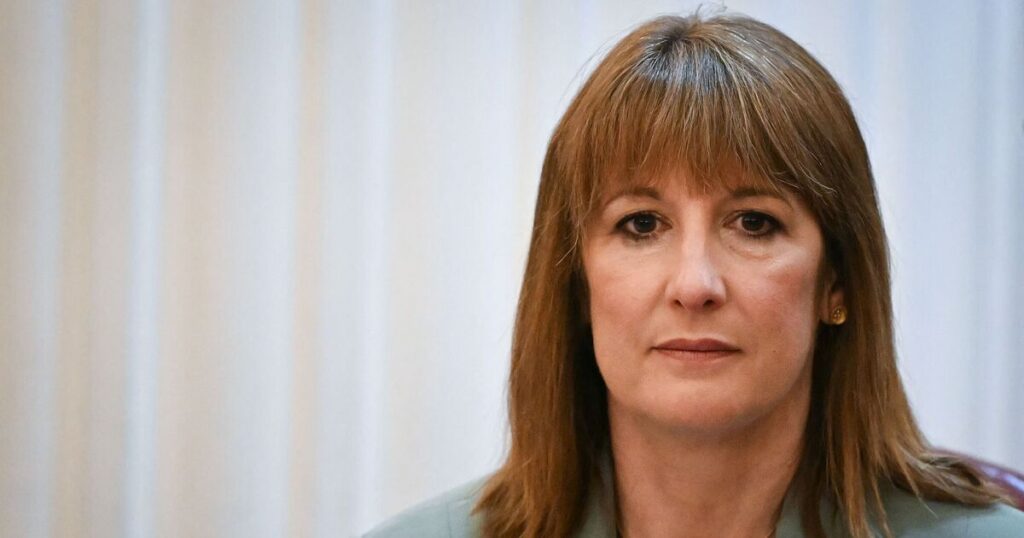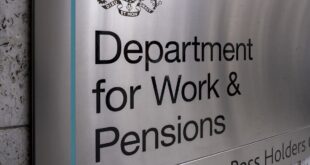
Britain’s economic outlook is darkening as tax rises loom. Official figures show GDP growth slowed in the second quarter of 2025, weakening from 0.7% in the first quarter to just 0.3% for April to June, according to the Office for National Statistics.
The National Institute of Economic and Social Research (Niesr), a think tank, has said taxes must rise again in autumn if the Chancellor is to meet her self-imposed fiscal rules, and speculation is rife as to what may be in the firing line. According to the Niesr, the Government will need to plug a £40billion hole in public finances, following a series of U-turns on welfare reforms and Winter Fuel Payments. Here are the eight areas Ms Reeves might target for revenue without breaking core election pledges not to raise rates on “working people.”
Inheritance tax
In last year’s Budget, Ms Reeves announced the inheritance tax-free threshold, which has remained at £325,000 since 2009, will remain intact until 2030. The freeze has brought thousands more estates into the tax net over the years due to rampant house prices and inflation.
She also announced plans to bring unspent private pensions into taxable estates from 2027, as well as cuts to Agricultural Relief, Business Property Relief, and AIM shares.
Despite the levy being one of the most lucrative for HMRC – raking in £2.2billion in just three months between April and June 2025, Ms Reeves may be plotting to target inheritance again this year. According to reports, officials are examining whether tightening rules around the gifting of assets and money could help address the UK’s multi-billion-pound fiscal shortfall.
Among the reported measures under consideration is a potential cap on the lifetime gifts.
Income tax and fiscal drag
Although Labour’s manifesto pledged not to raise Income Tax, National Insurance, or VAT, the freeze on income tax thresholds is set to continue until at least April 2028. This “fiscal drag” draws more earners into higher tax brackets as their wages rise, potentially increasing Government revenue by billions over the coming years.
Andreea Daly from Money Squirrel said: “Another confirmed measure is the continued freeze on income tax thresholds until April 2028. This policy steadily draws more people into higher rates as wages grow but tax bands remain unchanged, raising close to £9 billion annually by the end of the decade and significantly expanding the pool of higher-rate taxpayers.”
Gerrard Boon, managing director for the mortgage and protection brokerage, Boon Brokers, added that direct increases to the rates themselves are unlikely, but fiscal drag is now the primary vehicle for higher tax receipts.
Capital Gains Tax
After recent changes, Capital Gains Tax (CGT) is already closer to Income Tax bands, but more may be on the way. Possible measures include tightening reliefs and further aligning tax treatment across different asset classes.
Aaron Peake, personal finance expert at CredAbility, said: “Capital Gains Tax is already closer to income tax bands after last year’s changes, with most gains now taxed at 18% or 24%. Further moves could include tightening reliefs like Business Asset Disposal Relief or aligning treatment across asset classes.”
Mr Boon also predicted that CGT could be a likely target, potentially through allowance freezes, reducing reliefs, or raising rates.
Dividend tax
The allowance for dividend income has been reduced to nominal levels in recent years, yet experts expect further reductions or rate increases in the upcoming Autumn Budget.
The Tories cut the dividend allowance from £5,000 to £2,000 in 2018, then reduced it again to £1,000 in April 2023. In April 2024, it was halved again to £500.
Mr Peake said: “Dividend taxation is another candidate. The dividend allowance has been cut to a token level, and reducing it again or nudging rates would mainly hit investors and directors who take income via dividends.”
Gambling taxes
Targeted tax increases on activities such as gambling, unhealthy foods, and vaping have also been suggested, in a move designed to raise revenue while impacting a smaller voter base.
Ms Daly said: “Among these, gambling duties are a near-certainty for an increase, with rates on remote gaming, machine games, and general betting all expected to go up in a move that could raise around £1.6billion a year while impacting relatively few voters directly.”
Wealth taxes – unlikely, but gaining attention
While increasingly popular among some Labour supporters, a direct “wealth tax” remains a controversial, administratively complex proposal, and is unlikely in the near term.
Mr Boon said: “Though the idea of ‘wealth taxes’ has gained popularity in recent months, they have been largely dismissed due to their difficulty in implementing accurately and the administration cost of enforcing such a tax. Therefore, it seems unlikely that wealth taxes will be announced in the Budget. Although due to their surge in popularity, wealth taxes may be considered in future budgets.”
Mr Daly added that a possible levy on those with assets over £10million, while not ruled out, is still some way from reality.
Stamp Duty and Fuel Duty
While not front and centre, reductions in rate relief or thresholds on Stamp Duty or an end to the longstanding freeze on Fuel Duty could bring in further funds.
Mr Peake said: “Fuel duty has been frozen for years. With prices off their peaks, lifting the freeze even slightly is one of the fastest ways to bring in cash, although it is never popular at the pump.”
 Latest World Breaking News Online News Portal
Latest World Breaking News Online News Portal






